Drone Laws in Kansas

Paying attention to everything the FAA has put forth since their rules and regulations were initially put into full effect is crucial for all drone fliers. Although, do you know the laws and regulations related to drones in your state, as well?

The Registering Process in Kansas
The Federal Aviation Administration (FAA) requires that all Small Unmanned Aircraft Systems (UAS) owners follow strict regulations and laws. You will need to file your name, home address and your email address as a start.
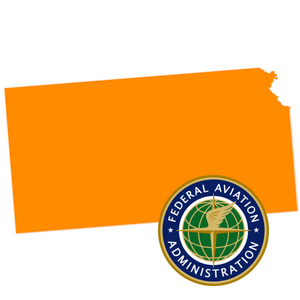
From there, you will receive a Certificate of Aircraft Registration and Proof of Ownership. These will include an identification number for your aircraft. You must have this number displayed on your drone at all times. The number will be valid for up to 3 years.
All aircraft that weighs more than 0.55 pounds, or 250 grams, and less than 55 pounds, or 25 kilograms, must be registered. This also includes any added payloads, such as an onboard camera.
You must be at least 13-years-old in order to register and, effective December 21st, 2015, all newly purchased or made drones must be registered before their first flight. You are able to register through a paper-based process, but you can also do so online by clicking here.
Proximity to Airports in Kansas
As a general rule of thumb, and in accordance with the law from the FAA, you may not fly within a 5-mile radius of any airport. In 2012 the FAA enacted the Modernization and Reauthorization Act which requires hobbyist drone operators, meaning residential, to contact air traffic control and/or airport management if they are operating within a 5-mile radius of any local airport.

This is enacted nationwide, not only in Kansas, under Part 101 of the Act, being Special Rule for Model Aircraft, to ensure that drone operations under unsafe conditions are disapproved before the drone can be launched.
Regardless of the local airport you will be flying near, and possibly breaching airspace, you will need to contact either the airport air traffic control tower or the airport operator.
You will need to establish an agreed-upon operating procedure with airport air traffic or the airport operator and answer a couple of questions. For example, questions relating to how long you are going to be flying for.
Unique Drone Laws in Kansas
At this time of writing, all of the legal information listed below is deemed as accurate as possible and fully in effect.
City of Wichita – Sec. 9.35.210. – KS Code of Ordinances
Sec. 9.35.210. – Operation of gliders, glider towing, remote control, and other aeronautical devices.
The release, launch or operation of remote radio controlled aircraft, balloons, hot air balloons, kites, rockets, gliders/sailplanes, unmanned aerial vehicles, and the towing of banners at or from any Airport, Airport property, or property immediately adjacent to and bordering Airport property shall not be permitted without the prior written consent of the Director.
Any person violating any provision of this Section of the Code is guilty of a misdemeanor and shall be punished by a fine of not more than five hundred dollars ($500) and/or imprisonment of not more than six (6) months and/or both such fine and imprisonment.
SB 319 – Protection From Stalking Act
Sec. 3. K.S.A. 60-31a02 is hereby amended to read as follows: 60- 31a02. As used in the protection from stalking act:
‘‘Stalking’’ means an intentional harassment of another person that places the other person in reasonable fear for that person’s safety.
(b) ‘‘Harassment’’ means a knowing and intentional course of conduct directed at a specific person that seriously alarms, annoys, torments or terrorizes the person, and that serves no legitimate purpose. ‘‘Harassment’’ shall include any course of conduct carried out through the use of an unmanned aerial system over or near any dwelling, occupied vehicle or other place where one may reasonably expect to be safe from uninvited intrusion or surveillance.
(c) ‘‘Course of conduct’’ means conduct consisting of two or more separate acts over a period of time, however short, evidencing a continuity of purpose which would cause a reasonable person to suffer substantial emotional distress. Constitutionally protected activity is not included within the meaning of ‘‘course of conduct.’’
(d) ‘‘Unmanned aerial system’’ means a powered, aerial vehicle that:
Does not carry a human operator;
uses aerodynamic forces to provide vehicle lift;
may fly autonomously or be piloted remotely;
may be expendable or recoverable; and
may carry a lethal or nonlethal payload.
Sec. 4. K.S.A. 61-2708 is hereby amended to read as follows: 61-2708.
The venue of actions commenced under this act shall be as prescribed in article 34 of chapter 61 of the Kansas Statutes Annotated, and amendments thereto, except that the county in which the cause of action arose shall be proper venue only where it is affirmatively shown that the defendant was a resident of the county where the cause of action arose at the time the cause of action arose.
Other Legal Issues With Drones in Kansas
At this time of writing, there are currently a number of bills in circulation within the state of Kansas surrounding drones.
SB 462 – Drones Flying Over Private Property
AN ACT concerning regulation of drones; dealing with private property rights.
Be it enacted by the Legislature of the State of Kansas:
Section 1. (a) A person wrongfully occupies real property and is liable for damages, who, without express permission of the person or entity with the legal authority to grant access to the real property or otherwise without legal authority, operates an unmanned aircraft or unmanned aircraft system less than 350 feet above ground level within the airspace overlaying the real property.
(b) For purposes of this act:
“Unmanned aircraft” means an aircraft that is operated without the possibility of direct human intervention from within or on the aircraft.
“Unmanned aircraft system” means an unmanned aircraft and associated elements, including communication links and the components that control the unmanned aircraft, that are required for the pilot in command to operate safely and efficiently in the national airspace system.
Sec. 2. This act shall not be construed to impair or limit any lawful activities of law enforcement personnel or employees of governmental agencies or other public or private entities that may have the right to enter land by operating an unmanned aircraft or unmanned aircraft system within the airspace overlaying the real property of another.
Sec 3. (a) The owner, tenant, occupant, invitee or licensee of privately owned real property shall have a civil cause of action for compensatory damages for violations of this act and may seek injunctive relief to prevent future violations of this act against a person, state agency, or political subdivision.Attorney fees shall be awarded to the plaintiff if the plaintiff is the prevailing party. Punitive damages may also be recovered in the appropriate case.
(b) Nothing in this section is intended to limit the rights and defenses available at common law under a claim of liability for wrongful occupation of real property.
HB 2397 – Unmanned Aerial Vehicle Regulation and Privacy Act
AN ACT enacting the unmanned aerial vehicle regulation and privacy act.
Be it enacted by the Legislature of the State of Kansas:
Section 1. Sections 1 through 11, and amendments thereto, shall be known and may be cited as the unmanned aerial vehicle regulation and privacy act.
Sec. 2. As used in Sections 1 through 11, and amendments thereto:
“Government entity” means the state or a municipality as such terms are defined in K.S.A. 75-6102, and amendments thereto, to include law enforcement agencies but excluding the Kansas army and air national guard.
(b) “Incidental collection” means the inadvertent or unintended collection of sensor data on a person or property during an authorized unmanned aerial vehicle operation.
(c) “Institution of higher education” means any Kansas accredited institution that has educational programs concerning the manufacturing, research and development, operational activities and other programs directly related to the advancement of the unmanned aerial vehicle industry.
(d) “Law enforcement agency” means any agency of a government entity that is vested by law with the duty to maintain public order and enforce criminal laws, including, but not limited to, any state investigative agency, city police department, county sheriff’s department, county law enforcement department established pursuant to K.S.A. 19-4401 et seq., and amendments thereto.
(e) “Private entity” means any civilian-owned entity that conducts services involving the flight of unmanned aerial vehicles within Kansas.
(f) “Public entity” means any agency of a governmental entity or contracted private entity that provides assistance to a government entity, the Kansas army or air national guard or a law enforcement agency in support to the general public, including, but not limited to, volunteer fire departments and emergency medical service providers.
(g) “Sensor data” means any electro-optical, infrared, thermal, ultraviolet or laser imagery, synthetic aperture radar, sound waves, air composition and other data within the electromagnetic and radio frequency spectrums regarding real property in Kansas or any individual located thereon.
(h) “Unmanned aerial vehicle” means any craft capable of flight without a human operator, passenger or other individual physically on board operating within the national airspace system as defined by the Federal Aviation Administration.
Sec. 3. (a) No unmanned aerial vehicle shall be operated in Kansas except as provided by sections 1 through 11, and amendments thereto.
(b) No unmanned aerial vehicle shall be operated in Kansas if such unmanned aerial vehicle is capable of firing a bullet, projectile or laser or otherwise being used as a weapon or avenue to inflict harm or damage to any person or property.
(c) Any operation of an unmanned aerial vehicle shall comply with all applicable Federal Aviation Administration requirements.
Sec. 4. (a) It shall be lawful for the Kansas army and air national guard and all other branches of the United States armed forces to conduct unmanned aerial vehicle operations as part of a mission or exercise in Kansas, provided that all regulatory requirements and directives of each operation or exercise are met. Nothing in sections 1 through 11, and amendments thereto, shall:
Limit the Kansas army and air national guard in their ability to accomplish mission sets relating to incident, awareness and assessment and defense support to civil authorities.
Prohibit the Kansas army and air national guard from contracting with institutions of higher education or private entities to augment national guard operations to ensure more effective operations and greater safety for individuals in Kansas; or
Prohibit the Kansas army and air national guard from contracting with institutions of higher education or private entities to conduct training and exercise scenarios on restricted military ranges, provided that such scenarios have been approved by the Federal Aviation Administration and the national guard bureau.
Sec. 5. (a) It shall be lawful under sections 1 through 11, and amendments thereto, for an agency of a government entity to:
Seek and acquire unmanned aerial vehicles only after such governmental entity obtains prior approval by the legislative body overseeing such governmental entity;
Contract with a private entity to conduct approved unmanned aerial vehicle operations in lieu of physically acquiring an unmanned aerial vehicle as an asset of such government entity;
Disclose or receive information regarding a person acquired by unmanned aerial vehicle operations if such person has given written consent to such disclosure;
Operate an unmanned aerial vehicle and to receive or disclose information gathered from such operation if the operation is conducted in circumstances creating a reasonable belief that there is an imminent threat to the life or safety of a person and that such operation would assist such person, subject to the following limitations:
The governmental entity’s request to conduct the operation shall document the factual basis for the emergency; and
A supervisory official within the governmental entity shall file a sworn statement with the appropriate district court setting forth the grounds for the emergency operation not later than 48 hours after the operation commences;
Operate an unmanned aerial vehicle and disclose information gathered from such operation to collect information from a public area pursuant to a warrant issues pursuant to K.S.A. 22-2502 et seq., and amendments thereto, or pursuant to an order issued by a court of competent jurisdiction if such agency of a government entity offers specific and articulable facts demonstrating reasonable suspicion of criminal activity and that operation of an unmanned aerial vehicle will uncover such activity, provided that:
Such an order shall not be issued for a period greater than 72 hours; and
A court may issue an extension of such an order for no longer than the authorizing judge deems necessary to achieve the purposes for which the order was granted and in no event for longer than 30 days;
Operate an unmanned aerial vehicle and disclose information gathered from such operation if no part of any information and no evidence derived from such operation may be used for any intelligence purpose or be received in evidence in any trial, hearing or other proceeding in or before any court, grand jury, department, officer, agency, regulatory body, legislative committee or other authority of the state of Kansas or a municipality thereof;
Operate an unmanned aerial vehicle:
If the governmental entity possesses reasonable suspicion that swift action is necessary to prevent injury to a person, imminent danger to life or property loss or damage;
To counter a risk of a terrorist attack by a specific individual or organization if the United States secretary of homeland security determines that credible intelligence indicates such a risk;
To provide continuous coverage when a governmental entity is searching for a fugitive or escapee or is monitoring a hostage or barricaded subject situation;
To provide more expansive coverage for the purpose of searching for a missing person or an identified pattern of criminal activity; or
To address other exigent circumstances in which probably cause exists that a crime is being committed; or
(a) Utilize and conduct unmanned aerial vehicle operations for the purpose of traffic incident assessments, highway infrastructure integrity and traffic control measures to include using radar in rural areas in addition to or in lieu of manned aircraft operations used for such purposes.
(b) When unmanned aerial vehicles are operated pursuant to this section, such operations shall be conducted in a manner to collect data only regarding the target and to avoid data collection on individuals, homes or areas other than the target. Facial recognition and other biometric matching technology shall not be used on non-target data collected by an unmanned aerial vehicle. Incidental collection must be kept to a minimum and must not be retained or received as evidence in any trial, hearing or other proceeding in or before any court, grand jury, department, officer, agency, regulatory body, legislative committee or other authority of the state of Kansas or a municipality thereof.
(c) The use of an unmanned aerial vehicle to gather evidence or information that is not otherwise lawfully accessibly in plain view shall constitute a search. Any government entity that uses an unmanned aerial vehicle to gather evidence or obtain sensor data shall comply in all respects with the United States constitution and the constitution of the state of Kansas.
(d) Any personal information obtained by a governmental entity’s operation of an unmanned aerial vehicle shall not be subject to disclosure pursuant to the Kansas open records act, K.S.A. 45-215 et seq., and amendments thereto.
Sec. 6. Except as provided in subsection (b) it shall be unlawful for an agency of a public entity to operate an unmanned aerial vehicle or to disclose or receive information acquired through the operation of an unmanned aerial vehicle.
(b) It shall be lawful under this act for a public entity to:
Conduct unmanned aerial vehicle operations for purposes that directly relate to such public entity’s daily operations that would be enhanced by utilization of unmanned aerial vehicle technology; and
To acquire and employ unmanned aerial vehicle systems by internal means or by contracting with private entities.
Sec. 7. (a) Except as provided in subsection (c), it shall be unlawful for an agency of a private entity to operate an unmanned aerial vehicle or to disclose or receive information acquired through the operation of an unmanned aerial vehicle.
(b) Unless under contract with a government entity, no private entity shall collect or retain sensor data on any person. Incidental collection by a private entity shall not be deemed a violation of this act. Such incidental collection must be kept to a minimum and may not be retained by the private entity.
(c) It shall be lawful under this act for an agency of a private entity to conduct unmanned aerial vehicle operations for commercial purposes, provided that:
Such private entity complies with all Federal Aviation Administration regulations that would authorize such entity to operate within the national airspace; and
Such private entity obtains written approval from any private land owner upon whose land an unmanned aerial vehicle will be operated not later than 24 hours prior to such operation.
Sec. 8. (a) Except as provided in section 4 and subsection (b), it shall be unlawful for an agent of an institution of higher education to conduct unmanned aerial vehicle operations or to disclose or receive information acquired through the operation of an unmanned aerial vehicle.
(b) It shall be lawful under this act for an institution of higher education to conduct unmanned aerial vehicle operations for the purpose of training and educating students in the field of unmanned aerial systems in furtherance of a degree, provided that:
Such institution of higher education conducts such operations in a Federal Aviation Administration approved area or other restricted military airspace and in compliance with all applicable Federal Aviation Administration regulations; and
Such institution of higher education obtains written approval from any private land owner upon whose land an unmanned aerial vehicle will be operated not later than 48 hours prior to such operation.
(c) An institution of higher education may contract with a private entity otherwise authorized to conduct unmanned aerial vehicle operations to facilitate training and provide service solutions for the institution.
Sec. 9. (a) Any person whose person or property has been the subject of information gathered by an unmanned aerial vehicle in violation of sections 1 through 11, and amendments thereto, shall have a civil cause of action against the person or person responsible for such violation. The person aggrieved may:
Enjoin a violation or imminent violation of this act;
Recover a civil penalty of:
$5,000 for all images captured in a single episode in violation of this act; or
$10,000 for disclosure, display, distribution or other use of any images captured in a single episode in violation of this act; or
Recover actual damages if the person who captured the image in violation of this act disclosed, displayed or distributed the image with malice.
(b) A court may award costs and reasonable attorney fees to the prevailing party in an action commenced pursuant to subsection (a).
(c) Incidental collection shall be exempt from civil liability under this section unless such data is retained or disclosed in violation of this act.
Sec. 10. Any person who operates an unmanned aerial vehicle in violation of sections 3, 6, 7 or 8, and amendments thereto, resulting in physical, emotional, intellectual or other damage to persons or property shall be guilty of a severity level 5, nonperson felony.
Sec. 11. The attorney general, in consultation with the adjutant general, shall create a program of public information and education communicating to the public the benefits realized by the state through operation of unmanned aerial vehicles, the technology used in unmanned aerial vehicle operations and the steps taken to address privacy issue concerns.
FAQ on Kansas Law and Drones
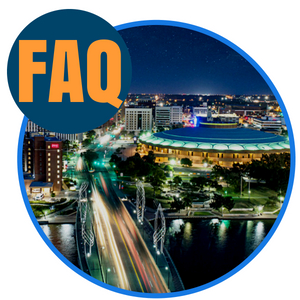
If you do not see your question, or an answer to it, listed below, feel free to get in touch with us and we’ll gladly give you one.
Is a drone/UAS considered the same as a model aircraft?
The United States Congress has defined and concluded that a model aircraft is only considered a drone or a UAS when the following points are met:
- It’s flown for recreational purposes or as a hobby and not for any business or commercial reasons
- It’s flown within visible distance, meaning being able to see it at all times, of the individual operating it
- t’s capable of sustaining flight within the atmosphere, meaning that it can fly
If your model aircraft, regardless of whether or not you acquired it pre-built or built it yourself, meets the above points to your knowledge, it’s considered a drone/UAS.
What is the Small UAS Rule?
The Small UAS Rule requires those who have unmanned aircraft systems, or UAS, that weigh less than 55 pounds, payload included, to register their aircraft with the FAA. This only applies to recreational or hobby fliers and not commercial drone use, however.
Is the FAA’s Small UAS Rule still in effect?
Yes, it has been in effect from August 29th of 2016 and is still in effect at this time of writing.
Do I have to carry my Certificate of Aircraft Registration while flying my UAS at all times?
Yes, you must have the registration certificate from the FAA at all times during flight operation. In accordance with federal law, all UAS operators must show their certificate of registration to any local, state, or federal law enforcement officer when they are asked to do so.
What do I do for registration if my UAS is over the 55-pound limit?
If your UAS weighs more than 55 pounds, including payload, you will need to register it by clicking here.

Drone Laws in Kansas
Knowing the laws, regulations, restrictions, etc., regarding drones in your state is extremely important. Remember to educate yourself, follow the rules, fly safely and responsibly, and have fun!

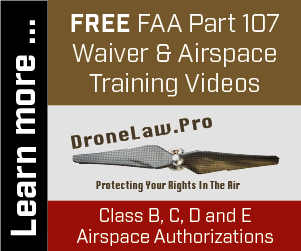
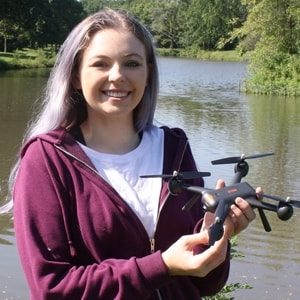
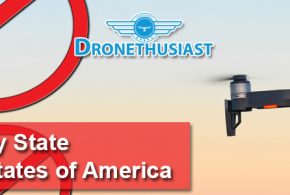
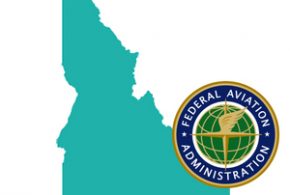
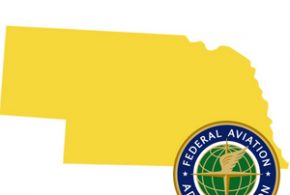
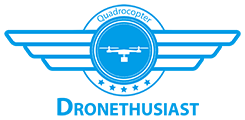
If my drone weighs less than 250 grams do I have to register or do anything at all?
My understanding is that it doesn’t need to be registered if it’s being used only for recreational purposes. Any commercial use (very loosely defined, so be careful) will require the drone to be registered with the FAA. Individual less than 13yo can’t register a drone.